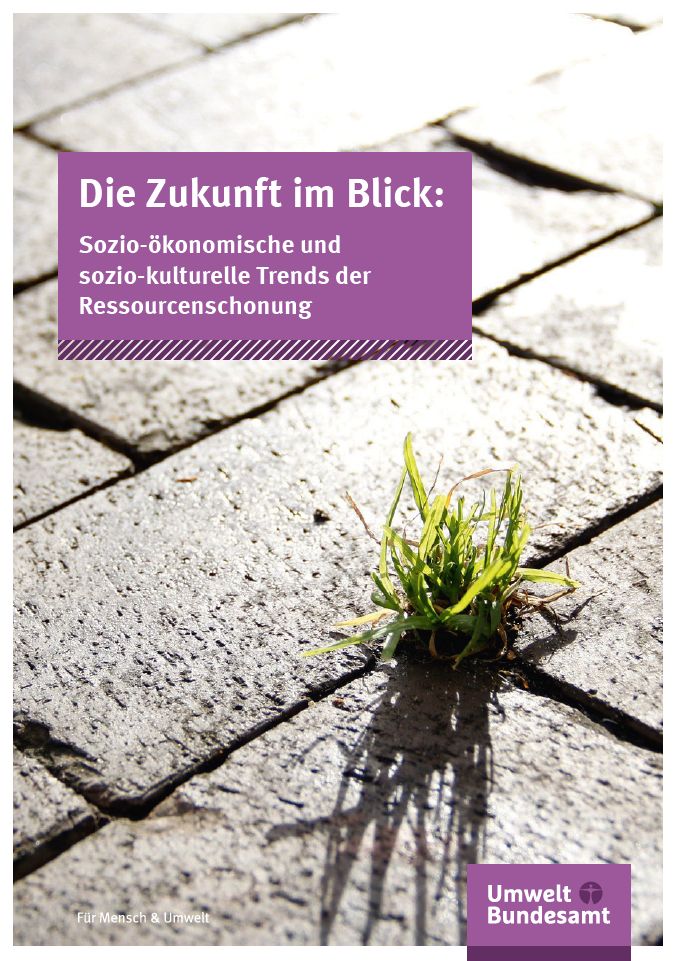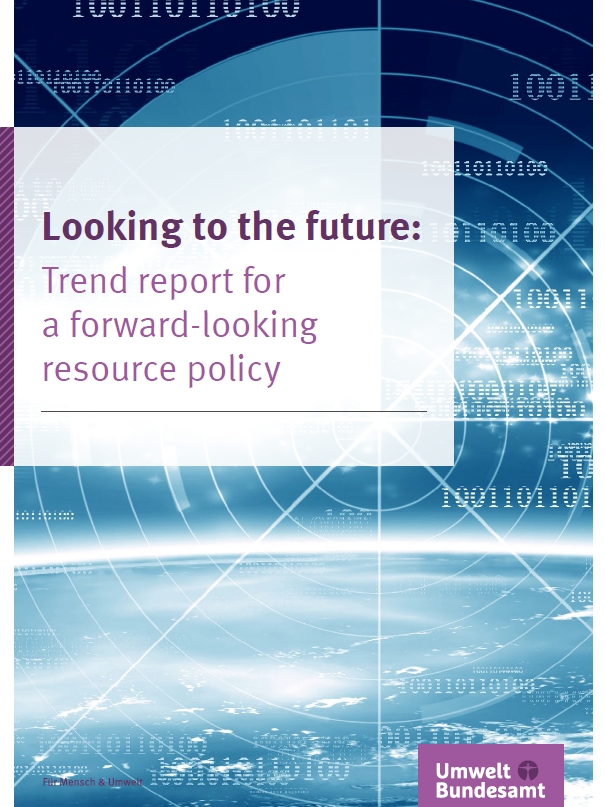The effects of the Corona crisis have massively changed the everyday life of citizens since February/March 2020. It is to be expected that this crisis and the associated drastic changes in everyday life will have a strong impact on perceptions, attitudes and patterns of interpretation of current political and social challenges. In the "Trend Radar" project, trends and opportunities for resource conservation relevant to the use of natural resources were intensively reflected in early summer 2019 in a qualitative-empirical online community with more than 100 participants from all social groups.
In view of the corona situation, it is to be expected that the assessments of individual trends, as set out in the 2019 brochure "Die Zukunft im Blick (Looking to the Future)" (German only), will change and that this will result in resource-policy-relevant findings for previously unknown situations. By means of a renewed reflection in the project "Trend Analysis Resource Policy" of identified trends relevant to the use of natural resources, it is thus to be ascertained to what extent these trends are assessed differently or in the same way as before against the background of the corona crisis.
This could apply to the following trends, for example (working hypotheses):
- Digitalisation of the world of work and private life in the light of far-reaching new home office, home schooling and digital working experiences
- Social insecurity in the context of concerns about economic development and the loss of jobs or livelihood opportunities, but also in relation to health, social cohesion, protection of vulnerable groups, etc
- Sufficiency and postal growth in the context of reduced consumption activities and opportunities and the obvious vulnerability of the existing growth model
- Sharing economy in the context of concerns about infection when sharing goods/services (mobility, etc.)
- Mobility in the context of reduced or changed patterns of movement (e.g. through home office and smaller action radii)
- Time prosperity and deceleration against the background of lock-down, short-time work, home office and temporal equalization of various work processes, but also in view of new "stress moments" such as home schooling
- Nation-state oriented demarcation and autarky efforts on the one hand and efforts towards more supranational cooperation on the other hand
Results from the empirical survey should be available in autumn 2020.




